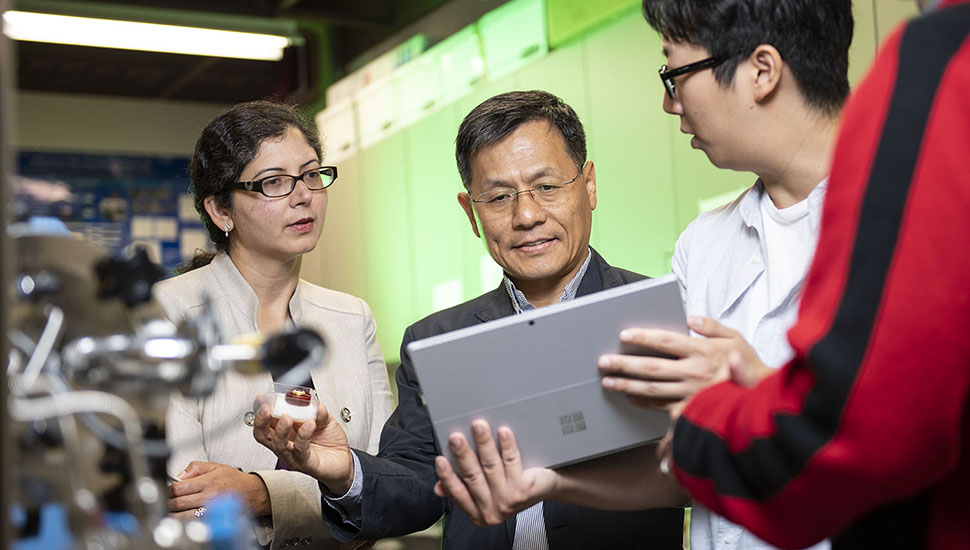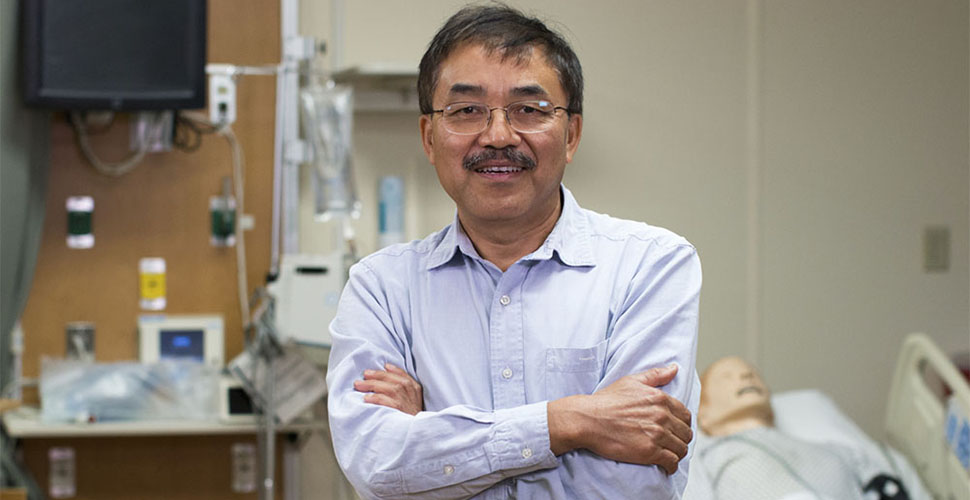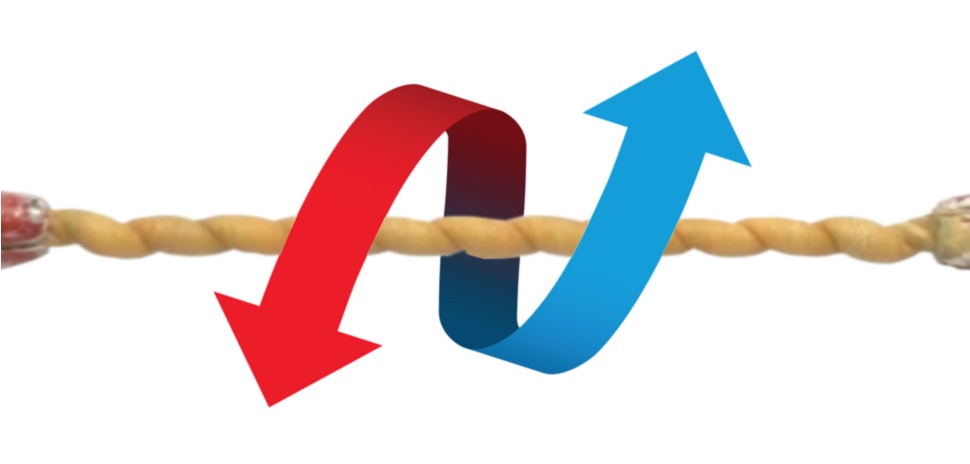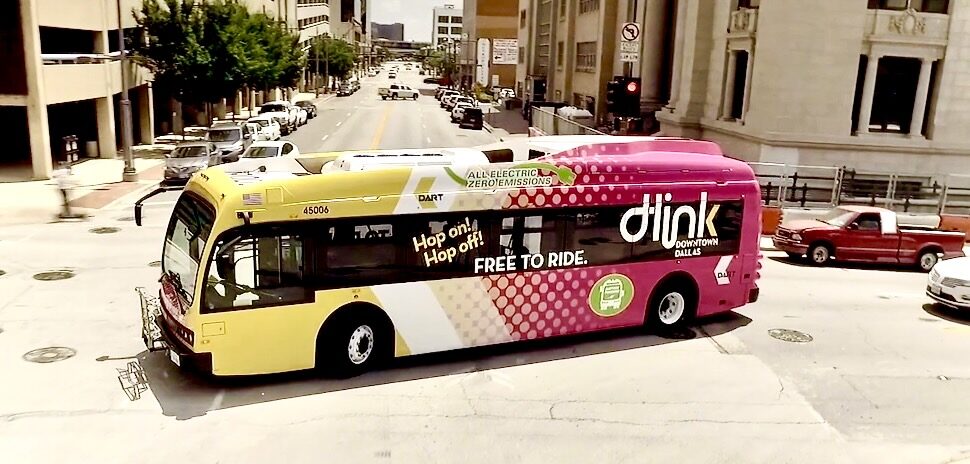![]() Every week, we do a little research of our own. We’re looking for scientists, professors, engineers, entrepreneurs—anybody, really—engaging in research and development across North Texas.
Every week, we do a little research of our own. We’re looking for scientists, professors, engineers, entrepreneurs—anybody, really—engaging in research and development across North Texas.
There’s plenty of good work being done. If you want to put R&D under your microscope, sign up for our e-newsletter.
UTD-led team’s refrigeration research has a twist
A good story often has a twist. Apparently, so does research in refrigeration.
Researchers at The University of Texas at Dallas and Nankai University in China have teamed up to discover a new technology for refrigeration that is based on twisting and untwisting fibers, according to a statement. The team published research this month that demonstrated twist-based refrigeration using materials as diverse as natural rubber, ordinary fishing line, and nickel titanium wire.
READ NEXT: Discovery: UNTHSC Works on More Precise CRISPR, UTSW Uses AI in Depression Research
“Our group has demonstrated what we call ‘twistocaloric cooling’ by changing the twist in fibers. We call coolers that use twist changes for refrigeration ‘twist fridges,’” Ray Baughman, director of the Alan G. MacDiarmid NanoTech Institute at UT Dallas, said in a statement.
Baughman is the study’s corresponding author of the study, along with Zunfeng Liu, a professor in the State Key Lab of Medicinal Chemical Biology in the College of Pharmacy at Nankai University in Tianjin.
Stretching a rubber band heats the rubber, and releasing the stretch cools it into something called elastocaloric cooling, according to a statement. Other solid substances for cooling include electrocaloric and magnetocaloric materials that cool via changes in electric and magnetic fields, respectively.
“This elastocaloric behavior of natural rubber has been known since the early 1800s. But to get high cooling from a rubber band, you have to release a very large stretch,” Baughman said. “With twistocaloric cooling, we found that all you have to do is release the twist.”

University of North Texas College of Engineering professor Wonbong Choi and associate professor Gayatri Mehta are working to create a flexible, internal wireless sensor system that will measure interactions between the tibia and femur and provide doctors with real-time information on joint pressure distribution both during and after surgery. [Photo: Ahna Hubnik / UNT]
UNT profs developing sensor to improve knee surgeries
Two professors at the University of North Texas College of Engineering might enhance the outcomes of in-knee surgeries.
Engineering professor Wonbong Choi and associate professor Gayatri Mehta are developing a sensor system for use in rebuilding and balancing the knee, according to a statement. Total knee arthroplasty surgically replaces the weight-bearing surfaces of the knee joint to relieve pain and correct disability. But, for the knee to work correctly, orthopedic surgeons must ensure that everything in the joint is in balance.
More than a third of patients experience soft tissue imbalance and/or a misalignment that will lead to stiffness in the joint and/or instability following surgery.
“Currently, surgeons tend to rely on their best judgment in determining what ‘feels’ like a balanced and stable knee,” Choi, a member of the materials science and engineering department, said in a statement. “Dr. Mehta and I believe we can create a flexible, internal wireless sensor system that will measure interactions between the tibia and femur and provide doctors with real-time information on joint pressure distribution both during and after surgery.”
According to a statement, Mehta and Choi submitted an Early-Concepts Grants for Exploratory Research (EAGER) proposal for their sensor project in May and have received $150,000 from the National Science Foundation to begin developing the sensor system.

Yan Xiao, professor of nursing and patient safety specialist at The University of Texas at Arlington’s College of Nursing and Health Innovation. [Photo: UT Arlington]
UTA leads consortium addressing unsafe use of medications
A professor of nursing and patient safety specialist at the University of Texas at Arlington’s College of Nursing and Health Innovation is leveraging a new four-year, $2.5 million grant to develop interventions to reduce unsafe use of medications.
Yan Xiao’s research is funded by a grant from the Agency for Healthcare Research and Quality, a division of the U.S. Department of Health and Human Services. It’s a major issue in U.S. hospitals, which record more than 700,000 emergency room visits and 100,000 hospitalizations attributed to preventable medication-related harm, according to a statement. It’s a particularly serious problem among patients ages 65 and older.
Xiao is overseeing the Partnership in Resilience for Medication Safety Learning Lab, or PROMIS lab—a consortium project led by UTA. Consortium members include Johns Hopkins University, JPS Health Network in Fort Worth, and the University of North Texas Health Science Center in Fort Worth.
Xiao and his fellow researchers will conduct interviews, focus groups, and design sessions with 100 older adult patients and 50 health care professionals such as physicians and pharmacists, at 12 clinics around the country, according to a statement. Also, they will use UTA’s Smart Hospital to simulate and test interventions.
![]()
Get on the list.
Dallas Innovates, every day.
Sign up to keep your eye on what’s new and next in Dallas-Fort Worth, every day.


































































